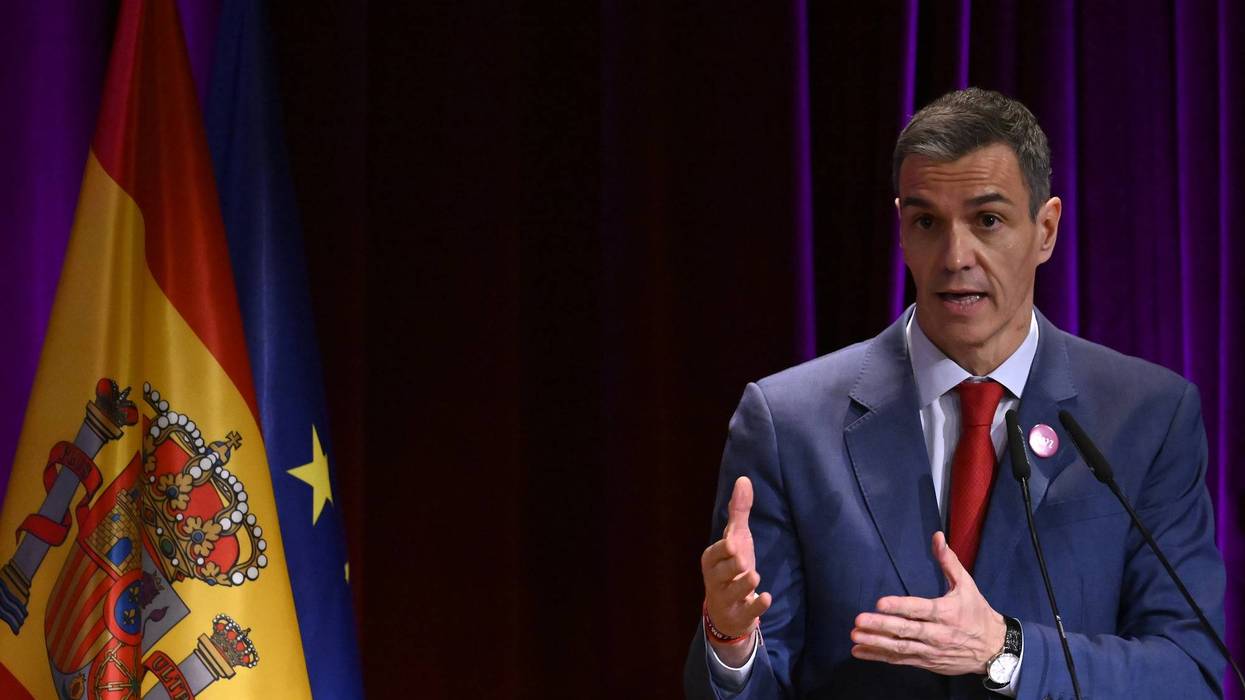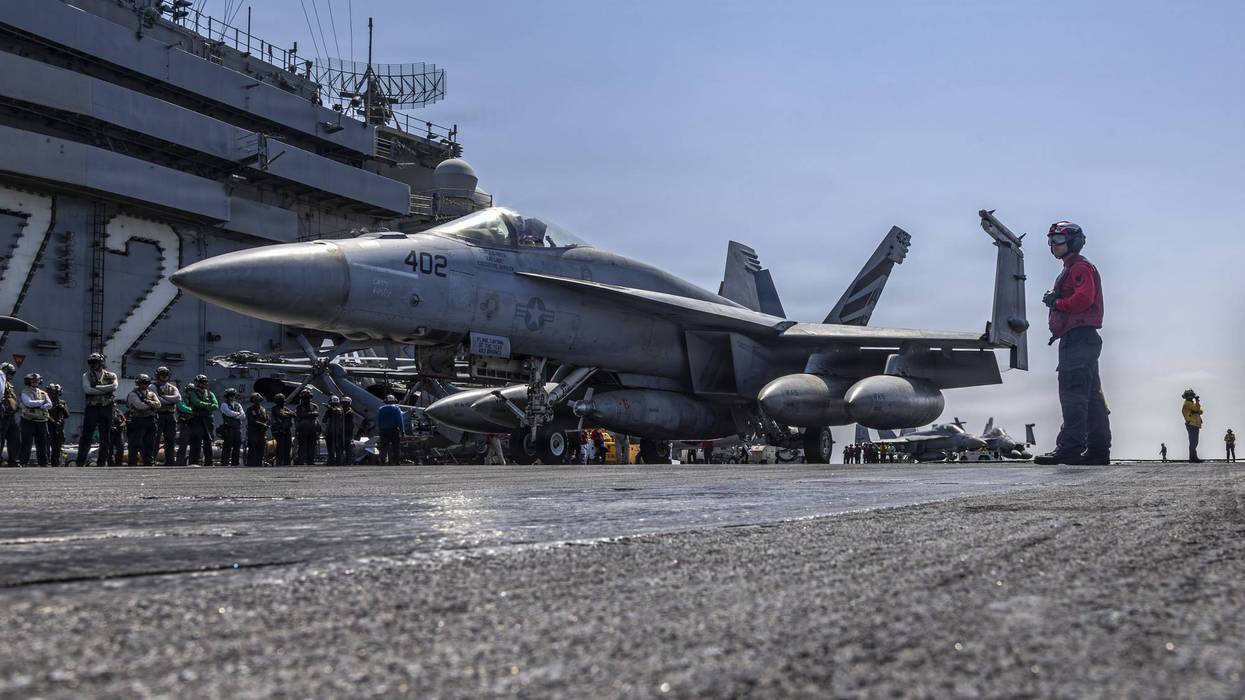'No to War': Spanish Leader Sánchez Undeterred by Trump's Trade Threat
European leaders expressed solidarity with Spain after Trump threatened a trade embargo in retaliation for the prime minister saying the US could not use Spanish military bases to attack Iran.
Spanish Prime Minister Pedro Sánchez on Wednesday appeared undaunted by President Donald Trump's threat to impose a full trade embargo on Spain in retaliation for its refusal to allow the US to use its military bases to wage war on Iran.
In a 10-minute televised address, Sánchez told the Spanish public that the country "will not be complicit in something that is bad for the world and contrary to our values and interests simply out of fear of reprisals from someone."
Despite Trump's threat, the Spanish government's position on the US and Israel's attacks on Iran, the prime minister said, can be summarized as "no to war."
The address came hours after Trump claimed the US military would use Spain's military bases to launch warplanes "if we want," despite Spanish Foreign Minister José Manuel Albares' earlier statement that the facilities could not be used "for anything that isn’t covered by the [United Nations] Charter.”
The US and Israel began attacking Iran early Saturday morning after Oman's foreign minister said American and Iranian officials had been making progress toward a deal on Iran's nuclear program.
Legal experts have said the unprovoked attacks are a clear violation of international law and the UN Charter, which prohibits the use of force unless it is "authorized by the UN Security Council or is a necessary and proportionate act of individual or collective self-defense in response to an armed attack.”
Secretary of State Marco Rubio stunned observers this week when he claimed the US and Israel had waged war because of an "imminent threat"—one that was posed because the US believed Israel was planning to strike Iran, and Iran was expected to retaliate against that potential attack.
On Wednesday, Sánchez said the US and Israeli strikes against Iran, which have so far killed more than 1,000 people, according to Iranian officials, signify a "breakdown of international law."
He compared the bombings to the George W. Bush administration's invasion of Iraq, which led to eight years of war and killed over 100,000 Iraqi civilians, and warned against “repeating the mistakes of the past."
“Very often great wars start with a chain of events spiraling out of control due to miscalculations, technical failures, and unforeseen circumstances," said the prime minister, who has also been outspoken in his opposition to Israel's US-backed assault on Gaza and the Trump administration's invasion of Venezuela in January. "Therefore, we must learn from history and cannot play Russian roulette with the fate of millions."
Trump on Tuesday also expressed anger over Spain's refusal to cave to his demand that all North Atlantic Treaty Organization (NATO) member states commit to spending 5% of their gross domestic product on defense by 2035.
But other members of the European Union, which collectively negotiates trade with the US, were quick to express solidarity with Spain.
German Chancellor Friedrich Merz, who met with Trump at the White House on Tuesday, told the president that European countries would not agree to a trade agreement with the US that didn't include Spain, while French President Emmanuel Macron spoke to Sánchez to convey his "solidarity." European Council President António Costa also said he has spoken to the Spanish prime minister and reaffirmed the EU's "firm commitment to the principles of international law and the rules-based order everywhere in the world."
Despite Europe's strong stance against Trump's threats, US Treasury Secretary Scott Bessent on Wednesday doubled down on the president's rhetoric, appearing on CNBC to accuse Spain of "not meeting their NATO requirement" and of putting "American lives at risk" by not allowing the US to use its bases.
Stéphane Séjourné, the EU's internal market commissioner, was not deterred by Bessent's comments, warning that "any threat against member state is by definition a threat against the EU."
He noted that European countries already joined together this year to defend Greenland from Trump's claim that he would take over the autonomous territory, part of the Danish kingdom, by force.
"If you threaten one particular country... well, we’ve seen that about Greenland," said Séjourné. "I think we saw that there was a lot of unity.”



